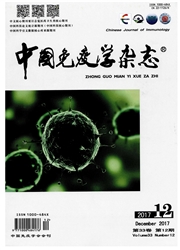

 中文摘要:
中文摘要:
结核分枝杆菌(Mycobacterium tuberculosis,Mtb)是一种极其成功的胞内病原菌,可通过多种策略实现免疫逃逸,从而在宿主巨噬细胞中长期存活。在对抗病原菌的防御过程中,泛素系统(Ubiquitin system)在激活宿主炎症免疫反应、细胞自噬、吞噬体成熟和细胞死亡等天然免疫功能及相关信号通路中发挥了重要的调控作用。而另一方面,近年的研究表明Mtb等胞内病原菌可通过分泌效应蛋白(Effector proteins)挟持并利用宿主泛素系统进而抑制宿主的免疫功能,这些病原-宿主互作的界面有望成为抗结核药物研发的新靶点。
 英文摘要:
英文摘要:
Mycobacterium tuberculosis( Mtb) is an extremely successful intracellular bacterial pathogen that engages multiple strategies to escape host immune surveillance,so as to survive within host macrophages for long period. Upon the invasion of pathogenic bacteria,the host ubiquitin system plays a critical role in activating the host innate immune responses and associated signaling pathways such as inflammatory and immune responses,autophagy,phagosome maturation and cell death,etc. On the other hand,recent studies have demonstrated that intracellular pathogenic bacteria such as Mtb can secrete a variety of effector proteins into host cells to hijack or co-opt the ubiquitin system to suppress host immune responses. Those pathogen-host interacting interfaces could provide potential novel targets for the development of anti-tuberculosis drugs.
 同期刊论文项目
同期刊论文项目
 同项目期刊论文
同项目期刊论文
 期刊信息
期刊信息
